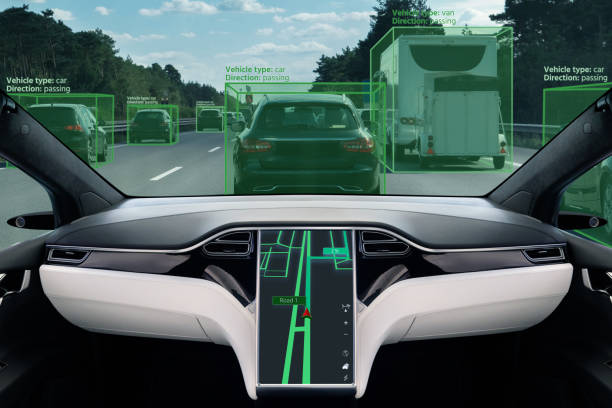Quantum Sensors: The Next Frontier in Automotive Safety
In the realm of automotive innovation, a groundbreaking technology is poised to revolutionize vehicle safety and performance. Quantum sensors, leveraging the principles of quantum mechanics, are emerging as a game-changing solution for precise navigation, collision avoidance, and environmental monitoring. This cutting-edge technology promises to elevate driver safety and vehicle capabilities to unprecedented levels.

The Quantum Leap in Automotive Sensing
Quantum sensors operate on principles fundamentally different from traditional sensors. While conventional sensors rely on classical physics, quantum sensors harness the bizarre and counterintuitive world of quantum mechanics. At the heart of quantum sensing lie phenomena such as superposition, where particles can exist in multiple states simultaneously, and entanglement, a phenomenon Einstein famously called spooky action at a distance.
These quantum properties allow for measurements of unprecedented accuracy and sensitivity. For instance, quantum magnetometers can detect changes in magnetic fields a billion times smaller than the Earth’s magnetic field. This level of precision opens up new possibilities for navigation and object detection in vehicles.
Navigating with Quantum Precision
One of the most promising applications of quantum sensors in automotive technology is in navigation. Current GPS systems, while useful, have limitations in accuracy and can be disrupted by tall buildings or tunnels. Quantum sensors offer a solution through quantum-based inertial measurement units (QIMUs).
QIMUs use atom interferometry to measure acceleration and rotation with extreme precision. By monitoring the quantum state of ultra-cold atoms as they fall in a vacuum chamber, these sensors can track a vehicles motion with unparalleled accuracy. This technology could enable centimeter-level positioning, even in GPS-denied environments, dramatically improving navigation capabilities for both human-driven and autonomous vehicles.
Quantum-Enhanced Collision Avoidance
Collision avoidance systems stand to benefit significantly from quantum sensing technology. Quantum radar, utilizing entangled photons, could detect objects with greater resolution and range than current radar systems. This enhanced detection capability would be particularly valuable in adverse weather conditions or low-visibility environments.
Moreover, quantum lidar systems could provide three-dimensional mapping of a vehicles surroundings with unprecedented detail. By employing single-photon detectors and quantum light sources, these systems could operate effectively even in bright sunlight or through partial obstructions, addressing some of the key limitations of current lidar technology.
Environmental Monitoring at the Quantum Scale
Quantum sensors also show promise in enhancing a vehicles ability to monitor its environment. Quantum gas sensors, for example, can detect trace amounts of gases with extreme sensitivity. This capability could be used to improve air quality control systems in vehicles, ensuring a healthier in-cabin environment for passengers.
Furthermore, quantum-based gravimeters could detect subtle changes in gravitational fields, potentially alerting drivers to hazards such as sinkholes or unstable road conditions before they become visible. This predictive capability could significantly enhance road safety, especially in areas prone to natural disasters or infrastructure degradation.
Overcoming Quantum Challenges
While the potential of quantum sensors in automotive applications is immense, several challenges must be addressed before widespread adoption becomes feasible. One of the primary hurdles is the need for extreme environmental control. Many quantum sensing technologies require ultra-cold temperatures or high vacuum conditions to function optimally, which can be challenging to maintain in a vibrating, temperature-fluctuating vehicle environment.
Engineers are working on developing more robust quantum sensing systems that can operate under less stringent conditions. Progress in this area includes the development of room-temperature diamond-based quantum sensors and miniaturized atomic clocks that can function in more variable environments.
The Road Ahead for Quantum Automotive Technology
As research in quantum sensing continues to advance, we can expect to see gradual integration of these technologies into vehicles over the coming years. Initial applications may focus on high-end luxury vehicles or specialized autonomous systems, with broader adoption following as the technology matures and production costs decrease.
The impact of quantum sensors on automotive safety and performance could be transformative. From enabling centimeter-accurate navigation in urban canyons to providing early warning of road hazards invisible to the human eye, these advanced sensors promise to usher in a new era of automotive capability and safety.
As we stand on the brink of this quantum revolution in automotive technology, it’s clear that the vehicles of the future will not just be smarter, but will operate with a level of precision and awareness that was once the realm of science fiction. Quantum sensors represent not just an incremental improvement in automotive technology, but a fundamental shift in how vehicles perceive and interact with the world around them.





